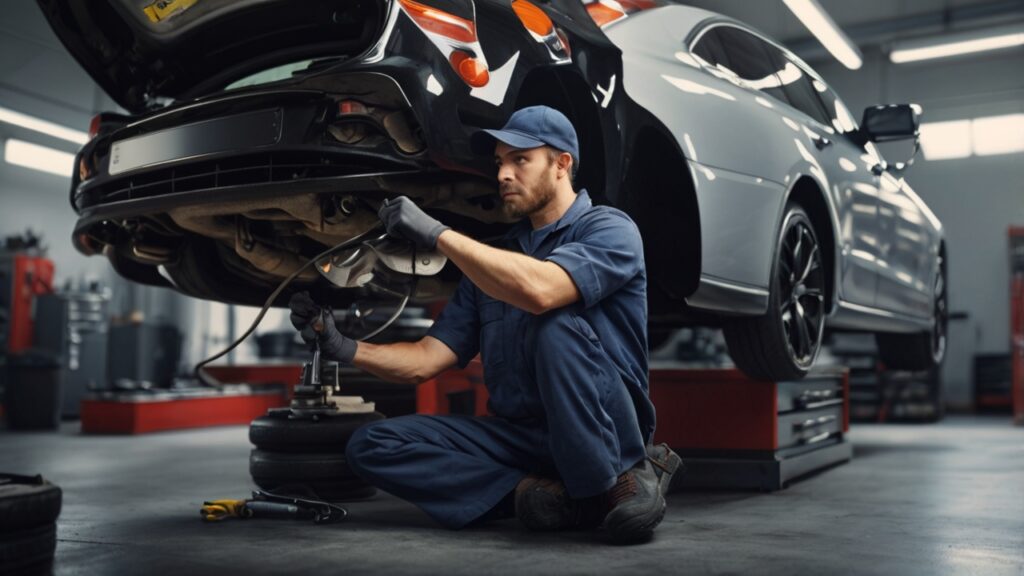It’s shocking how quickly car repair bills can pile up, especially when we’re talking about the most expensive exhaust system repairs. Many drivers don’t realize that what starts as a small rattle, a faint smell, or a little extra noise can spiral into thousands of dollars in expenses. I’ve seen it happen to a close friend: he ignored a weird ticking sound under his car, and two months later he was paying for a full exhaust replacement. Ouch.
The truth is, repairs like catalytic converter replacement cost, muffler replacement cost, and even the dreaded exhaust manifold repair price aren’t just random figures pulled from thin air. They are driven by parts, labor, and the complexity of modern vehicles. And unfortunately, these are some of the costliest components of your car’s exhaust system. But before we get into the numbers, let’s acknowledge something: preventative care is always cheaper than repair. Yes, it sounds cliché, but trust me—it’s true.
Now let’s dive into the three biggest wallet-draining repairs, why they hurt so much financially, and how you can dodge them with some proactive habits.
1. Catalytic Converter Replacement
Without a doubt, catalytic converter replacement cost is at the top of the list. In today’s market, replacing a catalytic converter can run anywhere from $1,000 to $3,500 depending on your car model. For luxury or hybrid vehicles, the price can be even higher because of the precious metals inside—platinum, rhodium, and palladium. That’s also why catalytic converters are such a hot target for thieves.
Why so expensive?
The part itself is costly due to those rare metals. On top of that, installation requires specialized tools and expert knowledge, making labor fees steep. Many mechanics will tell you the converter is basically the heart of your emissions system, so it can’t be bypassed or patched with cheap fixes.
Real-life example: A neighbor of mine had her Toyota Prius converter stolen in a mall parking lot. The replacement cost ended up being over $2,800, and she had to wait weeks because of supply chain issues.
How to avoid it:
- Park in well-lit areas or garages to reduce theft risk.
- Keep your engine tuned properly. A clogged or misfiring engine can damage the converter faster.
- Consider installing a catalytic converter shield.
2. Exhaust Manifold Repair
The exhaust manifold is another trouble spot. The exhaust manifold repair price can easily hit $1,200 or more, depending on whether you need welding, resurfacing, or a full replacement. Cracks and leaks here are common because the part endures extreme heat daily.
Why it drains your budget:
The repair process usually means removing multiple engine components just to access the manifold. That means hours of labor, and let’s be real—most of the cost in auto repair shops is labor. Trusted technicians often stress that ignoring a cracked manifold doesn’t just create noise; it lets toxic fumes seep into the cabin and can lower fuel efficiency significantly.
Repair process detail: Mechanics typically unbolt the old manifold, clean the cylinder head surface, replace gaskets, and then carefully torque everything back to spec. If welding is needed, a reliable welder with high-temp equipment is required, which also adds to cost.
How to reduce risk:
- Don’t push your engine too hard when it’s still cold.
- Regularly check for ticking sounds near the engine bay.
- If you’re handy, a basic inspection at home with a flashlight can reveal cracks early (here’s a step-by-step DIY guide worth following).
3. Full Exhaust Replacement
The most dreaded repair is a complete exhaust system replacement, and it easily sits among the most expensive exhaust system repairs. Depending on your car, this can cost anywhere from $2,500 to $5,000. That’s not just a muffler replacement cost—it’s the pipes, resonator, muffler, catalytic converter, gaskets, hangers, and more.
Why it’s costly:
Modern cars are designed with exhaust systems that fit snugly around the frame and engine bay. Installing a new system isn’t just about bolting parts together—it’s about precision. Professional shops need lifts, cutting tools, welding gear, and sometimes even computer diagnostics to reset sensors afterward.
A painful case study: I once worked with a client who drove his SUV with a rusted exhaust system until it literally snapped in half on the highway. Not only was the replacement over $4,000, but he also faced a fine for driving with a dangerously loud car.
Tips to avoid this nightmare:
- Wash your car’s underbody if you live in snowy areas (road salt accelerates corrosion).
- Don’t ignore rattling or dragging noises underneath.
- Use high-quality, reliable exhaust parts instead of the cheapest aftermarket versions. Trusted parts often last longer and give peace of mind.
How a Blocked Exhaust Hurts Engine Performance
A clogged catalytic converter or muffler isn’t just about noise or emissions—it directly affects your engine’s power. When exhaust gases can’t escape properly, the engine has to work harder, burning more fuel and reducing horsepower. Imagine running with a pillow over your face; that’s what your engine feels like. Experts warn that ignoring these symptoms will almost always lead to bigger repairs later.
Warning Signs That Require Immediate Repair
Instead of waiting until costs skyrocket, look out for signs such as:
- Strong exhaust smells inside the car
- Sudden drops in fuel efficiency
- Louder-than-normal engine noise
- Visible rust or holes underneath
Professional advice is simple: if any of these signs pop up, don’t delay. Reliable exhaust system experts, like the specialists in North Carolina, often emphasize quick action as the key to avoiding major expenses.
How to Do a Basic Check at Home
You don’t need to be a mechanic to catch small problems. I’ve personally crawled under my car with just a flashlight and a rag and discovered early rust patches. By sanding and repainting, I saved myself hundreds. If you’re curious, you can follow a simple home inspection guide that walks you through the process.
Choosing the Best Parts and Trusted Mechanics
One big mistake I see is people choosing the cheapest parts. Sure, the muffler might be $150 instead of $300, but if it rusts in two years, you’re back at square one. Reliable exhaust parts are an investment. As for mechanics, look for trusted shops that show you old parts, explain labor clearly, and provide warranties.
Ideas for Future Learning and Blogs
While today we’ve focused on the three most expensive exhaust system repairs, there’s a world of related topics worth exploring:
- The impact of upgraded performance exhausts on resale value (surprisingly controversial).
- Whether eco-friendly aftermarket converters actually save money long-term.
- The psychology behind noise preferences—why some people love loud mufflers while others see them as a nuisance.
- Stories from professional mechanics about the strangest exhaust failures they’ve seen.
- The debate between DIY patch kits vs. calling a reliable professional.
Each of these naturally extends from the cost conversation and gives car owners more ways to save money and protect their vehicles. For more insights, you can always check out the exhaust system resource center at Pro Service Tips or explore other automotive advice at ProServiceTips.com.
FAQs
Q1: How much does a muffler replacement cost on average?
Muffler replacement cost ranges between $300 and $800, depending on your vehicle model and the quality of parts. Custom performance mufflers can be more expensive.
Q2: Is it safe to drive with a cracked exhaust manifold?
Not really. A cracked manifold can leak harmful fumes into your cabin and reduce performance. Experts recommend immediate repair to prevent further damage.
Q3: Can I clean a catalytic converter instead of replacing it?
Sometimes yes, if the clog is minor. Professional mechanics use special cleaning solutions or high-heat techniques, but if the core is melted, replacement is the only option.
The reality is clear: the most expensive exhaust system repairs can wreck your budget if ignored. But by recognizing early warning signs, choosing reliable parts, and leaning on trusted professionals, you can avoid financial pain. I’ve seen drivers save thousands just by catching small leaks early.
If you found this guide helpful, please share it with your friends using the share buttons below. It might just save someone from a massive repair bill.



